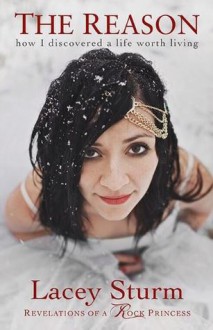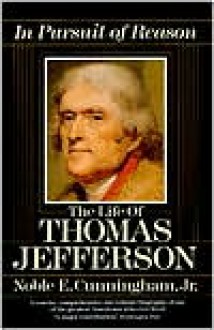 Spinoza worked on his philosophy in the belief that, provided it was constructed on entirely rational lines, in accordance with the model set by Euclid’s geometry, then it would be accepted without doubt by educated readers and would be approved by the political leaders of his day. In practice, his work fell far short of that ideal and today we have Gödel to thank for showing its intrinsic impossibility. Euclid himself was toppled from his throne a century later. Indeed Spinoza’s own work admitted the possibility of reaching mutually conflicting views from the same starting point. In particular, it was apparent that people may on the one hand be motivated by Reason, so that error and dispute could be traced to mistakes in the reasoning process, but they could also be motivated by passion, with very different outcomes. The first shaped his Ethics, the second his Politics. If Spinoza’s philosophy had in fact attained logical perfection it would still have been rejected by his contemporaries. This became increasingly evident even to Spinoza himself. Knowing that, he deferred publication of his Ethics until after his death.
Spinoza worked on his philosophy in the belief that, provided it was constructed on entirely rational lines, in accordance with the model set by Euclid’s geometry, then it would be accepted without doubt by educated readers and would be approved by the political leaders of his day. In practice, his work fell far short of that ideal and today we have Gödel to thank for showing its intrinsic impossibility. Euclid himself was toppled from his throne a century later. Indeed Spinoza’s own work admitted the possibility of reaching mutually conflicting views from the same starting point. In particular, it was apparent that people may on the one hand be motivated by Reason, so that error and dispute could be traced to mistakes in the reasoning process, but they could also be motivated by passion, with very different outcomes. The first shaped his Ethics, the second his Politics. If Spinoza’s philosophy had in fact attained logical perfection it would still have been rejected by his contemporaries. This became increasingly evident even to Spinoza himself. Knowing that, he deferred publication of his Ethics until after his death. The author is not impressed by Spinoza’s claim to have relied strictly on Reason in his philosophy because it incorporates so much that is clearly no more than the reiteration of contemporary prejudices, of which she is most aggravated by his strident misogyny. I found her comment on this more than witty; arguments used to show that women are unfit to rule would make better sense if they were used to show that men are unfit to rule.
"Spinoza took care not to let his theory of mind be trapped in contemporary empirical theory... He was interested only in working from those laws of nature that could be taken as unarguably true – common notions governing all instances of a kind... According to Spinozistic principles then, any claim about the nature of women must be derived from an axiom or common notion and any claim made about women which could not be inferred from such a notion was suspect... Spinoza gives no demonstration of his view of women’s mentality in Ethics. He merely asserts that certain mental weaknesses are womanly... Yet in Ethics Part 3, and in later writings, the superstition and bias that strangled the rational faculties of women could also grip men in insane passion. ... Further, males are shown to be weakened by a humiliating affect traditionally associated with their gender. ‘Nor are they thought to be less mad who burn with Love, and dream, both day and night, only of a lover... Men generally judge [women’s] ability only by their beauty.’ Spinoza made men victims of female seduction. He claimed that women induced irrationality and distorted political decisions... Yet he used this male weakness as evidence for his view that women, not men, were unfit to rule.” It is a delight to observe a woman skewering Spinoza’s misogyny using his own methods.
This book traces many examples where the content of Spinoza’s philosophy is attributable to and explained by contemporary events. Indeed, the book’s objective is really to identify these links. The associated account of Dutch history would be fascinating in its own right, were it not mercilessly selective. Instead, it is largely confusing, not least because detailed accounts of some events are set beside total silence on others. The upshot, nevertheless, is that his writings cannot be viewed as the dispassionate work of a timeless thinker. Happily, this does not have to be as big a problem as it might appear, because what can be rescued is not the content, the material that is so obviously of its own time and place, but the methodology and the attitude which are arguably of lasting value and absolutely relevant to our own time.
”...examination of Spinoza’s life and character serve to confirm that certain logical flaws are integral to his thinking and are therefore ineradicable. ... We may today get the most from Spinoza if we take the ... approach of appealing not to ‘the letter’ of his work, but to his general treatment of issues which concern us. Then, I believe, we find answers which spring from the mainstream of his philosophical thought – his metaphysical theory of the interrelatedness within nature of all natural phenomena, physical and mental – from which he believed deductions concerning particular cases should be made. Many such deductions are shockingly relevant to current affairs and contemporary personal situations... His requirement was that we reason out our predicament either by investigating its causes or by appealing to some common notion. While it would be satisfying to be able to intuit the truth of our situation, the bulk of Spinoza’s doctrine dictates that this option is not available to us. Instead, our decision making procedures must consider each experience of pain, loneliness, guilt, fear, obsession, appetite and financial or other anxiety as an event of kind so-and-so, taking into account our own internal drive. Moral dilemmas and practical choices are with equal profit examined against this grid. ... We should look at our ...predicaments not only in terms of what the harm or good in doing x must be when any human, considered independently of a specific historical or cultural domain, does x, but in terms of what is the harm or good for a person of our disposition. It must not be forgotten that Spinoza, stunningly, vests the ultimate obligation of any individual wholly in that individual, reasoning self.”

 Log in with Facebook
Log in with Facebook 









